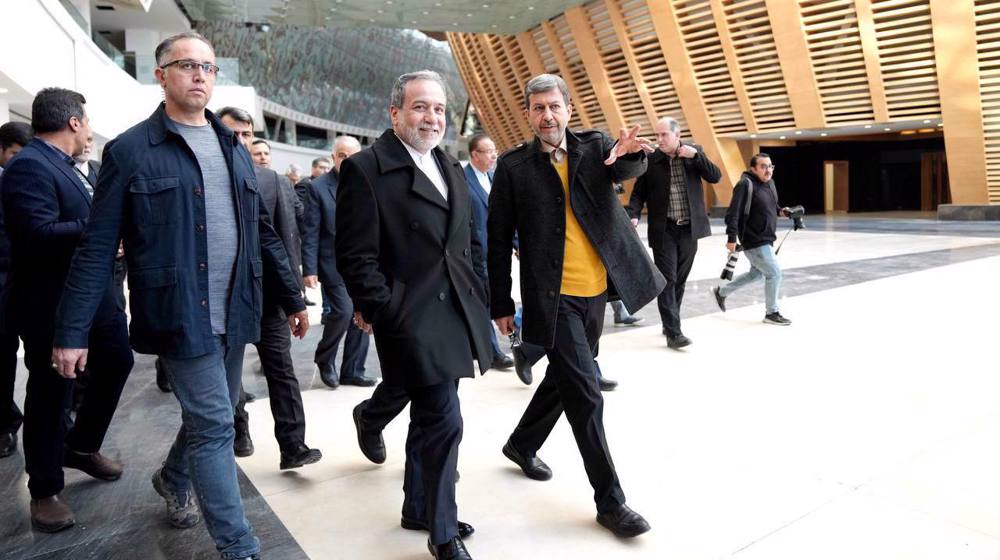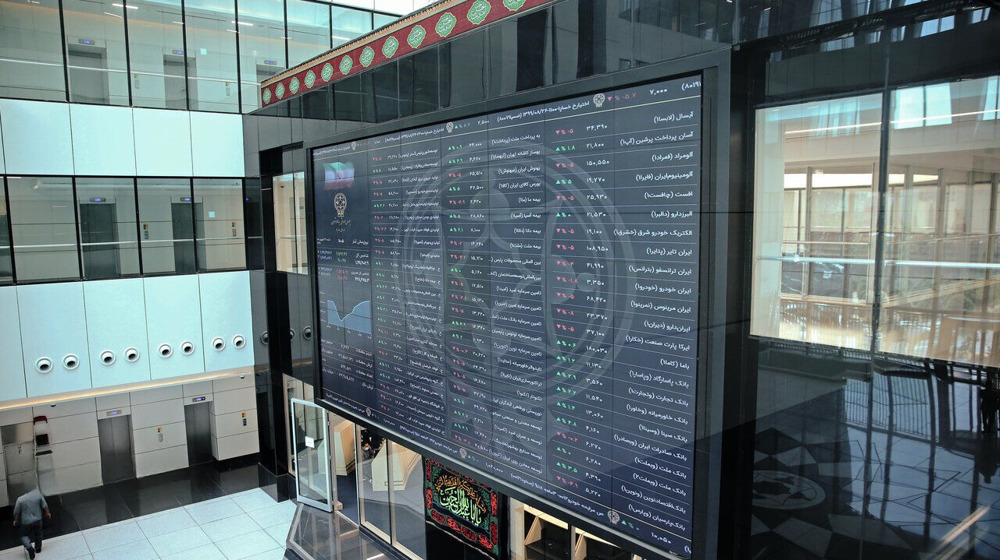US drags Iran students to flight boarding, then bars them
Mehran founded a software development company at the age of 22 and within two years had 20 employees. It was a success, but one day he realized he wanted more: he wanted a graduate degree in software engineering.
With some work and perseverance, he eventually won a scholarship to get his doctorate at a prestigious American university. He transferred his stock to family members, put in place a substitute chief executive, sold his apartment, and began the process of getting a visa.
Finally, two months later, he was granted permission to study in the United States and on Sept. 6, he headed to the airport. But Mehran, 24, never made it onto the flight — his visa had been revoked and he was turned away at check-in.
Now in limbo, Mehran does not know whether to apply for another visa or try and go back to his old life.
"The problem is, I don't know what to do in these months,” he said from Tehran via the encrypted messaging app Telegram. “Every single day, I lose lots of opportunities. With the uncertainty, I can't even apply for other countries."
Mehran is one of 20 Iranian students NBC News has identified who were barred from boarding flights to the US during September, despite having the necessary paperwork.
The students who spoke to NBC News requested that only their first names be used, fearing that speaking out would affect their reapplication process. They all attended the prestigious Sharif and Tehran universities and were headed to Stanford University, Northwestern University and the University of California, among other institutions.
This small handful of Iranians, who represent a huge jump in the number of students whose visas have been revoked, are casualties of President Donald Trump’s hardening stance toward Tehran.
Since President Trump imposed a travel ban and pulled out of the Iran nuclear deal in 2018, relations between the two countries have soured dramatically.
The tighter policies have led to a decline in visa issuances to Iranians. There are about 12,000 Iranian students in the US based on data from the Institute of International Education. But the number of Iranian student visas halved from 3,139 visas in 2016 to 1,643 in 2018, according to the US State Department.
A spokesperson for the State Department said denied there had been a policy change when it came to issuing visas to Iranian students.
“International students are a priority for the Department of State, and we continue to welcome legitimate student visa applicants," a State Department official said. Customs and Border Protection also denied there had been “changes to their policy on Iranian travelers with valid visas.”
Pargar Holding, a company that helps Iranian students through the admissions and visa process, said that in the five years it has been operating, it has not not seen anywhere close to that number affected.
“Visa revocations are rare cases, impacting maybe one or two students a year,” Morteza Alizadeh, a director at the firm, says.
The Iranians had been approved for single entry student visas, by US embassies in Turkey and Armenia. (Iran and the US do not have diplomatic relations, so consular affairs have to be dealt with via third-party countries.)
When they checked at the end of August, they saw that their Consular Electronic Application Center accounts were updated and their visas were still marked as issued.
The single entry visa meant they’d be gone for five years — a big but worthwhile sacrifice for Sepideh, 26, a computer scientist who planned to go to the US for her doctorate. Once at the airport, however, airline personnel turned her away and told her to contact the US embassy.
"As I write this, I still don't know what I have done, what the issue is," Sina, 26, said. He was headed to the University of California, Irvine, for a doctorate in engineering. "I ranked first in my masters in the whole department. I had offers which I rejected, so I could come to the US I believed it would be better for my career. I never dreamed that this would happen."
Saaqi, 25, an engineering doctoral candidate also accepted to UC Irvine, had already signed up for classes. "My life is a complete blank. I don't have a plan B," she said.
Mohammad-Ali, 27, says he’s depressed and is rethinking his goals.
"I came back to the dilemma of abandoning my family, aiming high, versus having a more emotionally rich life," he wrote.
All the students got the same emails from their respective embassies: "Unfortunately, we do not have any information to share about your visa status."
The American Embassy in Yerevan, Armenia, emailed this message to Mohammad-Ali, who shared it with NBC News.
Those who could afford to, like Sepideh, went back to the embassies only to be told the process would have to restart. Mohammad-Ali says the concern is that the "CANCELLED" stamp in their passports is a black mark, possibly affecting future visa applications. Mehran was refused within two weeks of his reapplication Sept. 27. The visa process is a financial strain that can cost up to $5,000.
Iranians planning for visas save for years. The average income of a middle-class family in Tehran is around $1,000 a month, but with sanctions $1,000 has little value. Mohammad-Ali says he was making $300 a month as a top engineer. This process has cost him a fortune. Students trying to cut costs take a 26-hour bus ride to Armenia or move in with family.
Many know the risks involved in trying to study in the US, but none expected this.
"It feels like there is a ban against us," Ali said.
Mohammad, 25, a doctoral candidate at the University of Texas, is still waiting for approval, and says he cannot afford a second attempt. Saving for the first visa took years, he says. Now, he has lost his place in the program, his professor saying the visa system is too uncertain.
Some students believe their situation is political, that their biggest hurdle is nationality.
"Of course it’s political,” Mohammad said. ” We’re targeted because we are Iranian, because of my nationality. Something I cannot help. I am losing opportunities just because I was born here, that is so hard to endure.”
Amin Khorram, a doctoral student, says he was deported from Boston Logan International Airport after hours of questioning and had his luggage and electronics searched with no explanation. Now, he is unable to reapply for a new visa and says he has lost all hope of returning to school.
In the search for answers, some have reached out to schools and lawmakers. Peyman, headed to the University of California San Diego, has written to Sen. Dianne Feinstein, D- Calif., in a bid for help.
Officials at the University of California say they are aware of the issue.
“We are doing everything we can for these students, including working with the US State Department, US Customs, and Border Protection and Capitol Hill to seek answers,” a spokesman wrote to NBC News.
“UC has a deep commitment to providing a world-class education to all our international students. Once they are enrolled at UC, we do everything possible to assist with their safe and timely arrival on campus, as well as to support them throughout their studies at the university."
(Source: NBC News)
Iran’s soft power to quench regional thirst for healthy beverages
Ansarullah: South Yemen proxy war meant to help Israeli dominance
Explainer: How America’s foster care system harms children instead of protecting them
‘A full year of injustice’: Son of Gaza doctor Abu Safiya demands his immediate release
Trump: Zelensky doesn’t have anything ‘until I approve it’
VIDEO | Press TV's news headlines
Hezbollah rejects internal discord, will not fight Lebanese army: Senior official
VIDEO | Severe weather floods coastal roads in southern France











 This makes it easy to access the Press TV website
This makes it easy to access the Press TV website